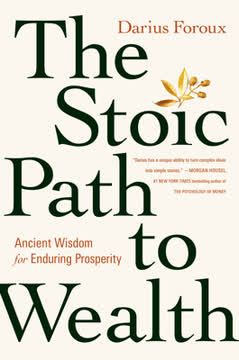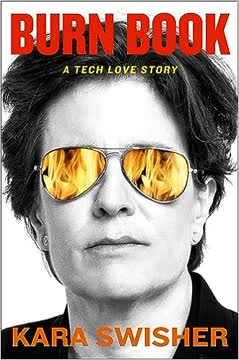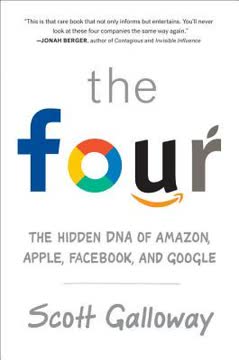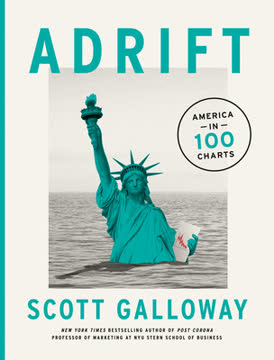Key Takeaways
1. Economic security is freedom from financial anxiety
Economic security is acquiring sufficient assets—not income, but assets—such that the passive income they generate exceeds the level of spending you choose for yourself—your burn rate.
Define your financial goals. Economic security isn't about achieving a specific number, but rather reaching a point where your passive income from investments exceeds your chosen lifestyle expenses. This allows you to focus on relationships and personal growth without constant financial stress.
Calculate your target. To estimate the assets needed for economic security:
- Determine your annual "burn rate" (expenses + taxes)
- Multiply that number by 25 (assuming a 4% annual return)
This gives you a rough target for the invested assets required to generate sufficient passive income.
Shift your mindset. True wealth is having options and control over your time, not just accumulating more possessions. Focus on building assets that generate passive income rather than solely increasing your salary.
2. Character and behavior are key to building wealth
Economic security doesn't derive from an intellectual exercise; it's the result of a pattern of behavior.
Develop good habits. Financial success is rooted in consistent behaviors, not just knowledge. Focus on cultivating habits that align with your long-term financial goals:
- Track your spending meticulously
- Save automatically before spending
- Invest regularly, regardless of market conditions
- Continuously educate yourself about personal finance
Practice Stoicism. Adopt stoic principles to build resilience and make better financial decisions:
- Focus on what you can control
- Delay gratification for long-term gains
- Cultivate contentment with what you have
- Learn from setbacks without being discouraged
Build a supportive community. Surround yourself with people who encourage responsible financial behavior and share your values. Seek mentors and accountability partners to help you stay on track.
3. Follow your talent, not your passion
Mastery can lead to passion.
Identify your strengths. Instead of chasing elusive passions, focus on developing skills you're naturally good at or that come easily to you. These talents are more likely to lead to career success and financial rewards.
Invest in skill development. Once you've identified your talents, dedicate time and effort to honing those skills. Continuous improvement and mastery in your chosen field will increase your value in the job market and open up more opportunities for advancement and higher income.
Let passion grow organically. As you become more proficient and successful in your chosen field, you're likely to develop a genuine passion for your work. This passion, born from competence and achievement, is more sustainable than one based solely on initial interest.
4. Focus on career growth and income maximization
Working hard does not equal character.
Prioritize career advancement. In your early career years, focus intensely on developing skills, building a professional network, and positioning yourself for rapid advancement. This may require sacrifices in other areas of life, but it lays the foundation for long-term financial success.
Maximize your earning potential. Seek out high-paying industries and roles that align with your skills. Consider:
- Moving to cities with better job markets
- Negotiating aggressively for salary and benefits
- Taking calculated risks to advance your career
- Continuously updating your skills to stay relevant
Balance hard work with strategy. While working hard is important, it's not sufficient for success. Combine diligence with smart career moves, relationship-building, and continuous learning to maximize your income and opportunities.
5. Time is your most valuable asset for wealth creation
Investing is like planting oak trees. The best time to start is ten years ago. The second-best time is right now.
Harness compound interest. Start investing as early as possible to take advantage of the power of compound returns. Even small amounts invested consistently over time can grow significantly due to compounding.
Prioritize long-term thinking. Resist the temptation to focus solely on short-term gains or immediate gratification. Make financial decisions with a multi-decade perspective, considering how they will impact your future self.
Key strategies for leveraging time:
- Automate savings and investments
- Maximize tax-advantaged accounts (e.g., 401(k)s, IRAs)
- Reinvest dividends and capital gains
- Be patient during market downturns
6. Diversification is crucial for long-term financial success
Diversification is the art and science of broadening your risk profile so no single failure or global shift can fatally injure you.
Spread risk across asset classes. Invest in a mix of stocks, bonds, real estate, and other assets to reduce overall portfolio volatility and protect against sector-specific downturns.
Geographic diversification. Consider investing in both domestic and international markets to hedge against country-specific economic risks.
Rebalance regularly. Periodically adjust your portfolio to maintain your desired asset allocation as market conditions change.
Benefits of diversification:
- Reduces overall portfolio risk
- Smooths out returns over time
- Provides exposure to different growth opportunities
- Helps protect against catastrophic losses
7. Invest in low-cost, passive index funds for steady returns
Over the long term, no one beats it—no matter how well-educated, capitalized, or staffed.
Embrace passive investing. Research consistently shows that most active investors fail to beat market averages over long periods. Instead of trying to pick individual stocks or time the market, focus on low-cost index funds that track broad market indices.
Minimize fees. High investment fees can significantly erode returns over time. Opt for low-cost index funds or ETFs with expense ratios well under 1%.
Key advantages of index investing:
- Broad market exposure
- Lower costs
- Tax efficiency
- Reduced time and stress managing investments
8. Understanding taxes is essential for wealth preservation
I believe citizens likewise have a dual obligation, to their country and to their family, to pay the minimum legal taxes.
Educate yourself on tax basics. Understand different types of taxes (income, capital gains, property) and how they impact your wealth-building efforts.
Utilize tax-advantaged accounts. Maximize contributions to retirement accounts like 401(k)s and IRAs to reduce current tax burden and allow for tax-deferred or tax-free growth.
Strategies for tax optimization:
- Tax-loss harvesting
- Strategic charitable giving
- Timing of income and deductions
- Understanding state and local tax implications
- Considering Roth conversions
9. Real estate can be a powerful wealth-building tool
Real estate is the emperor of the asset classes.
Consider homeownership. Buying a home can be an effective way to build wealth through forced savings (mortgage payments) and potential appreciation. It also provides tax benefits and stability.
Explore investment properties. Rental real estate can provide steady income and long-term appreciation. Consider:
- Single-family homes
- Multi-unit properties
- Commercial real estate
Understand the risks. Real estate investing requires significant capital, active management, and carries risks like market downturns and unexpected maintenance costs. Educate yourself thoroughly before investing.
10. Relationships and community are the ultimate wealth
Everything meaningful in life is about others.
Invest in relationships. True wealth extends beyond financial assets to encompass rich personal connections and a supportive community.
Balance wealth-building with life experiences. While pursuing financial goals is important, don't sacrifice all present enjoyment for future security. Find ways to create meaningful experiences and memories along the way.
Give back. As you build wealth, consider how you can use your resources to positively impact others and your community. Philanthropy and mentorship can provide deep personal satisfaction and create a lasting legacy beyond material wealth.
Last updated:
FAQ
What's The Algebra of Wealth about?
- Focus on Financial Security: The book by Scott Galloway outlines a formula for achieving economic security through understanding wealth, time, and investment strategies.
- Four Actionable Principles: It distills wealth creation into four key principles: Stoicism, Focus, Time, and Diversification, helping readers build a strong financial foundation.
- Real-World Applications: Galloway uses personal anecdotes and examples from successful individuals to illustrate different paths to wealth, providing practical advice for navigating capitalism.
Why should I read The Algebra of Wealth?
- Practical Financial Guidance: Offers actionable insights for improving financial literacy and security, with real-world strategies that can be applied immediately.
- Unique Perspective: Combines personal experiences with broader economic insights, making complex financial concepts accessible and engaging.
- Holistic Approach: Emphasizes the importance of character, relationships, and community in achieving wealth, leading to a more fulfilling life.
What are the key takeaways of The Algebra of Wealth?
- Wealth Equals Economic Security: Defines wealth as the absence of economic anxiety, focusing on what you keep rather than what you earn.
- Time is Valuable: Highlights the power of compounding and the importance of starting early with investments, emphasizing time management.
- Character Matters: Stresses the importance of strong character and intentional decisions for long-term success, reflecting in financial outcomes.
How does Scott Galloway define "wealth" in The Algebra of Wealth?
- Absence of Economic Anxiety: Wealth is having sufficient assets so that passive income exceeds your burn rate, allowing you to live without constant pressure to earn.
- Focus on Assets: Emphasizes that wealth is about what you keep and how you manage it, not just income.
- Personalized Definition: Encourages readers to determine their own financial goals and definitions of wealth, as it varies from person to person.
What is the "Permission Slip" concept in The Algebra of Wealth?
- Seeking Wealth is Acceptable: Addresses societal stigma around pursuing wealth, arguing that seeking economic security is not immoral or greedy.
- Focus on Personal Goals: Reminds readers that their financial journey is personal and should not be influenced by societal pressures.
- Empowerment Through Wealth: Suggests that seeking wealth can reduce economic anxiety and lead to better relationships and a more fulfilling life.
What is the "Number" concept in The Algebra of Wealth?
- Calculating Your Financial Goal: Refers to the asset base needed for economic security, calculated as your desired burn rate multiplied by 25.
- Personalized Financial Planning: Encourages assessing spending habits and lifestyle to determine your "Number," clarifying financial goals.
- Long-Term Perspective: Understanding your "Number" aids in better long-term financial planning and investment strategies.
What does Scott Galloway mean by "Stoicism" in The Algebra of Wealth?
- Intentional Living: Stoicism is about living a deliberate life, focusing on saving and building character, resisting modern temptations.
- Character Development: Emphasizes that strong character is essential for making sound financial decisions, teaching resilience.
- Community and Relationships: Highlights the value of community and relationships in achieving wealth, crucial for personal and financial success.
How does The Algebra of Wealth address the concept of time?
- Time as a Currency: Argues that time is the most valuable resource, impacting financial success based on how it's allocated.
- Compounding Effects: Discusses the power of compounding in finance, personal growth, and relationships, leading to significant results.
- Long-Term Planning: Encourages thinking about future selves and sacrifices needed today for long-term benefits.
What is the significance of "Diversification" in The Algebra of Wealth?
- Investment Strategy: Diversification is key for managing risk in investments, spreading investments across different asset classes.
- Understanding Risk and Return: Emphasizes that higher potential returns come with increased risk, balanced by diversification.
- Long-Term Wealth Building: A diversified portfolio is essential for long-term wealth accumulation, weathering market fluctuations.
What is the "three-bucket model" for budgeting in The Algebra of Wealth?
- Organizing Finances: Categorizes finances into day-to-day consumption, intermediate expenses, and long-term savings for effective prioritization.
- Day-to-Day Consumption: Includes essential expenses like housing and food, advising to keep spending within the waterline budget.
- Long-Term Savings Focus: Encourages allocating excess funds into long-term savings to build wealth over time.
How does The Algebra of Wealth address the role of debt in personal finance?
- Debt as a Tool: Views debt as a double-edged sword, useful for building wealth when used strategically for long-term assets.
- Leverage for Growth: Explains how leveraging debt can amplify returns, such as using a mortgage to buy a home.
- Caution with Short-Term Debt: Warns against short-term debt with high-interest rates, advising careful management and prioritization of paying it down.
What are the best quotes from The Algebra of Wealth and what do they mean?
- "Money doesn’t talk, it swears.": Highlights the emotional weight of money and its impact, suggesting financial stress leads to anxiety.
- "You are what you do, not what you say you will do.": Emphasizes the importance of actions over intentions, reminding that consistent behavior defines success.
- "The best time to start is ten years ago. The second-best time is right now.": Underscores the urgency of taking action toward financial goals, encouraging immediate progress.
Review Summary
The Algebra of Wealth receives mostly positive reviews, with readers praising its practical financial advice, accessibility, and value for young adults. Many appreciate Galloway's writing style, humor, and personal anecdotes. The book covers topics like investing, saving, and building wealth, with a focus on character development. Some criticisms include a lack of depth in certain areas and occasional repetition of common financial wisdom. Overall, reviewers recommend it as a solid introduction to personal finance and wealth-building strategies.
Similar Books










Download PDF
Download EPUB
.epub digital book format is ideal for reading ebooks on phones, tablets, and e-readers.







